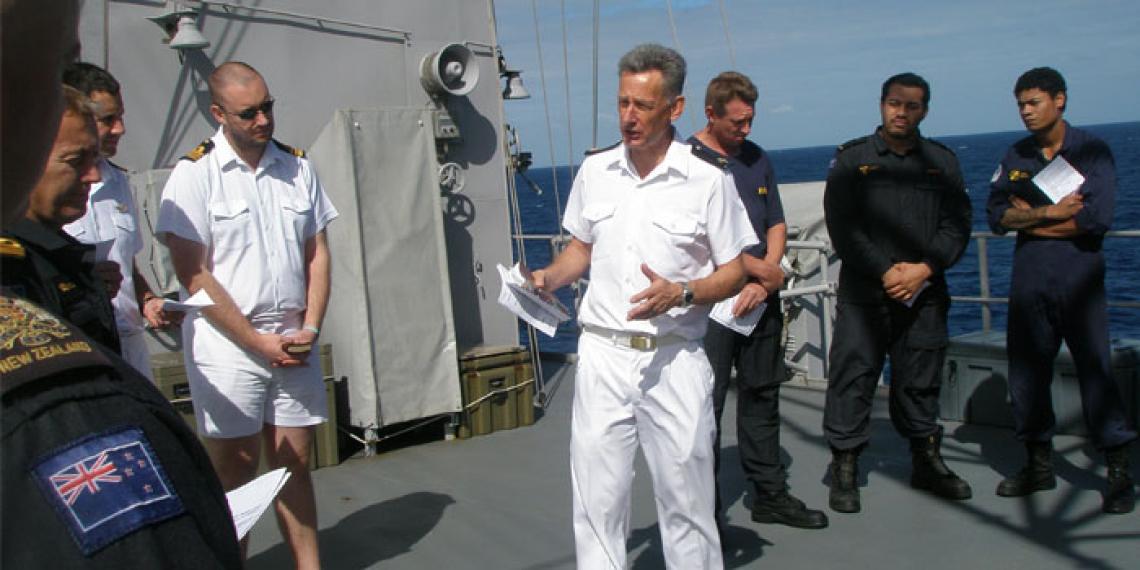You are here
A privileged role

I have been a Salvation Army officer for 36 years and have loved my roles as a corps officer (pastor). For many years, I also spent time providing military chaplaincy, which I would fit around corps duties. But in 2007, I was seconded into the other Army full-time: the New Zealand Defence Force.
Being a padre—the common term for a military chaplain—is a privileged role. Though part of the military structure, we maintain an independence that provides confidentiality. I have the freedom to move about, making contact across all ranks.
Some may think that all the Padre does is wander round having a good old chat. Well, yes that’s part of it, but this builds relationships where the person can feel comfortable and confident in talking about any issues.
I work with new recruits, taking tuition on issues like anger management, conflict resolution, values, suicide awareness, and death and dying. Many recruits are only 17–18 years old and have had their world turned upside-down. They’re just discovering that there are two ‘five o’clocks’ in the day, and they are being trained to kill. It’s a time when they often ask deeper questions and are open to faith and spiritual issues. I’ve had the privilege of leading people to the Lord. Seeing young people turn into mature men and women is very rewarding.
I was deployed to Afghanistan for six and a half months, where we faced near-death experiences like being hit by IEDs (improvised explosive devices). Many soldiers asked questions around ‘what if?’—mortality and what happens after death. I was privileged to lead worship services in the heart of an Islamic country.
Pastoral issues came up too. Like, ‘What do I do about my 18-year-old daughter who is having difficulties back home?’ During my deployment, there were seven ‘Dear John’ break-up letters. It’s immensely heart-breaking for soldiers when they’re so far away, and they may have to be taken off duty because they’re not in a fit state. Pastoral care is vital in these emotionally and physically gruelling situations.
Last year, I changed service from Army to Navy. As much as I enjoyed my time in ‘green’, the Navy certainly has its advantages. For example, on exercise in ‘green’, your accommodation is a fox hole; you eat from a ration pack, and there is not a shower in sight. Whereas, on exercise in the Navy, you are provided a pit (bunk), a steward takes your meal order, and there is a shower.
I recently had the privilege of sailing on Te Mana for her homeward journey from Guam, following her three-and-a-half month deployment. Living on the sea in cramped conditions is a challenging environment. The ship operates like a 24-hour city, and there’s always someone working.
As Padre, my role is to build relationships. So I was ‘loitering with intent’, or down in the galley peeling potatoes, providing help with conflict resolution—which can be a big issue in close quarters—visiting the sick bay, and taking Sunday services.
Whatever I’m doing, the purpose is to care for people’s spiritual needs. It’s a lot like The Salvation Army in this way, and I’m privileged to have found my calling in God’s Army and New Zealand’s Defence Force.
By Colin Mason (abridged from War Cry, 7 September 2013, p9)